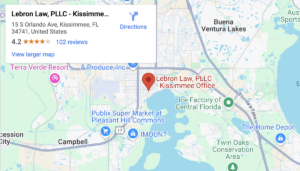Michele A. Lebron | September 30, 2025 | Family Law Blog

Many people are familiar with common law marriage and assume that living together for a long time in Florida will grant them the same rights as married couples. This is a common misconception, and Florida law has very clear rules on the subject.
Florida law does not recognize common law marriage for relationships formed after January 1, 1968 — no matter how long two people live together, how many bills they share, or how many people consider them “married.” Florida will not treat such couples as legally married if the relationship began in the state after that date.
However, there are important exceptions. Florida still recognizes common law marriages that were validly established in another state where such unions are legal. Additionally, Florida continues to recognize common law marriages formed in the state prior to January 1, 1968.
Long-Term Unmarried Couples in Florida
Because new common law marriages are not recognized, couples who live together without a marriage license do not automatically receive the same legal protections that married couples have.
This can lead to significant legal consequences, such as:
- No automatic inheritance rights if a partner dies without a will.
- No automatic authority to make medical or end-of-life decisions.
- No entitlement to property division or spousal support if the relationship ends.
- Limited access to certain benefits that apply only to legally married spouses, such as insurance, taxes, or government programs.
Living together, buying property jointly, or calling each other “husband” or “wife” socially does not create a marriage under Florida law. If you want your relationship to be legally recognized, you must obtain a marriage license and go through the formal marriage process.
When Common Law Marriage May Be Recognized
Even though Florida does not allow new common law marriages, there are two important exceptions:
- Pre-1968 Florida common law marriages: If a couple established a valid common law marriage in Florida before January 1, 1968, the state continues to honor that union today.
- Out-of-state common law marriages: If you entered a valid common law marriage in a state where it was legal, Florida will generally recognize that marriage when you move here. Marital status is typically carried across state lines.
For couples who prefer not to marry but still want legal protection, there are steps you can take. Options like wills, cohabitation agreements, health care directives, and powers of attorney can help safeguard your rights and ensure your wishes are respected.
Can I Inherit From My Partner Without Being Married in Florida?
In Florida, unmarried partners do not have automatic inheritance rights. If your partner passes away without a valid will, their estate will be distributed according to Florida’s intestacy laws — and only legal spouses, children, or other blood relatives are entitled to inherit. Cohabiting partners, even those in long-term relationships, are not included.
The only way for an unmarried partner to inherit is if their name is included in a valid estate plan. This can be done through a will, trust, or beneficiary designations on accounts like life insurance or retirement funds. Without these legal documents, an unmarried partner risks being left with nothing.
Contact a Kissimmee Family Law Attorney for Help
Florida does not allow new common law marriages, but certain older or out-of-state unions may still be recognized. If you are in a long-term relationship and want to know where you stand, or if you want to protect your financial and legal rights without formal marriage, consulting with an experienced attorney is the best way forward.
For more information, contact our experienced Kissimmee family law & divorce attorneys at Lebron Law, PLLC to schedule a free consultation.
We serve all through Osceola County and its surrounding areas in Florida. Visit our office at:
Lebron Law, PLLC Kissimmee
15 S Orlando Ave, Kissimmee, FL 34741
(321) 800-5195

